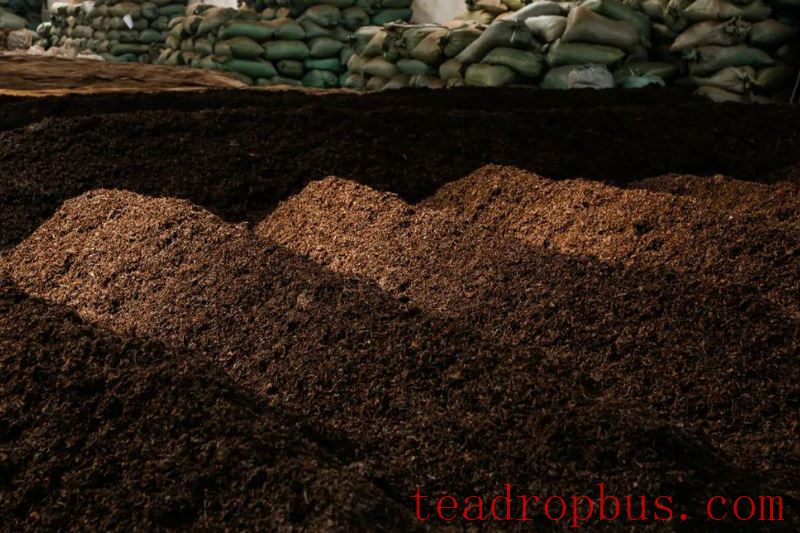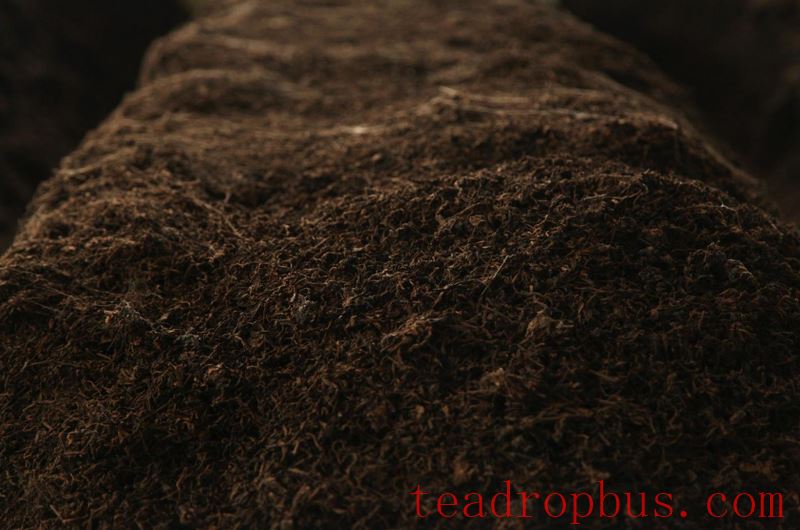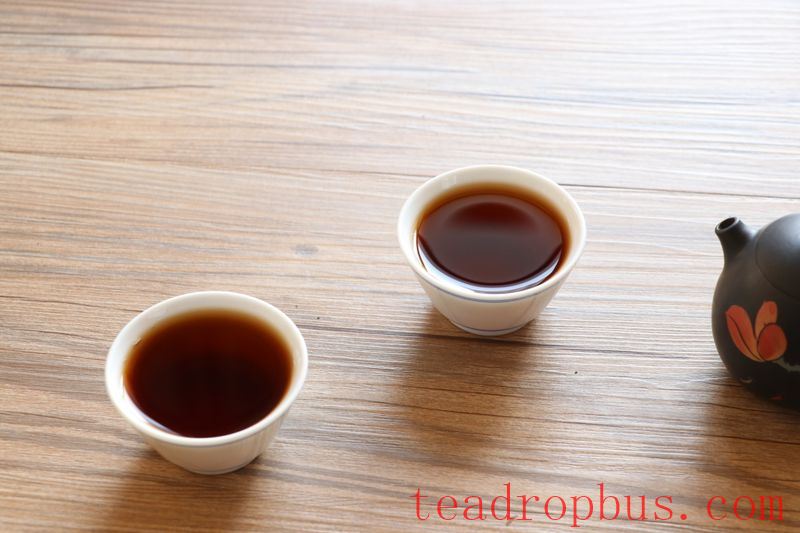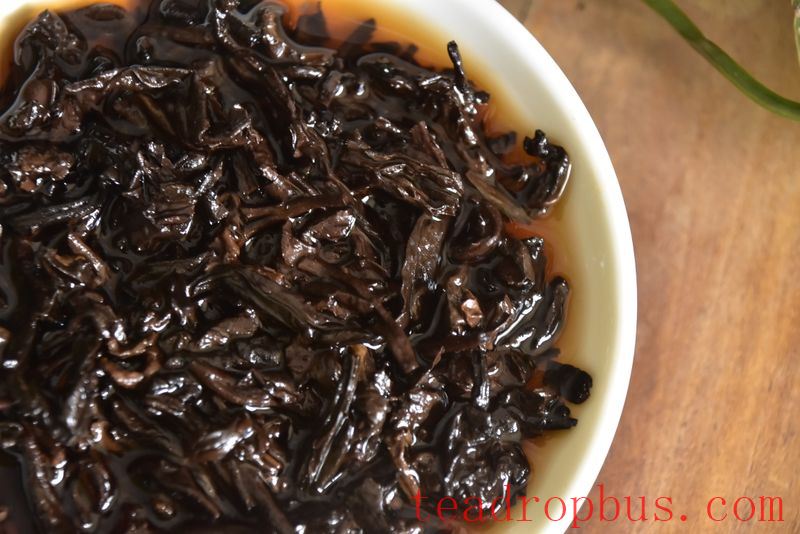Generally, it takes about 70 days for ripe Pu'er Tea to fully mature through pile fermentation. Today, let's take a look at the characteristics of each stage during the fermentation process of ripe Pu'er tea.

How long does the fermentation time for ripe Pu'er tea last?
First maturity: Around 10 days. At this stage, if the ripe Pu'er tea is brewed, the leaves will be apricot yellow and soft, the liquor color will be apricot yellow with turbidity and fuzz, and the taste will mainly be bitter and astringent with a slight astringency in the Sweetness.
Second maturity: Approximately 18 days. At this stage, if the ripe Pu'er tea is brewed, the leaves will be light yellow and soft, the liquor color will be yellow and turbid with much fuzz, and the taste will mainly be bitter and astringent but with a faster return to sweetness.
Third maturity: About 25 days. At this stage, if the ripe Pu'er tea is brewed, the leaves will turn slightly red with a yellow hue, the liquor color will be yellow with a faint red hue, and the taste will mainly be bitter and astringent with a quick return to sweetness, occurring around 20 seconds.

Fourth maturity: Around 32 days. At this stage, if the ripe Pu'er tea is brewed, the leaves will be red and yellow with softness, the liquor color will be yellowish red with turbidity, and the taste will be dull and slightly soft within the bitterness and astringency, with a quick return to sweetness.
Fifth maturity: About 38 days. At this stage, the leaves become a light red (similar to a 15-year-old pure dry storage raw Pu'er tea), the liquor color is light red with a faint turbidity, and the taste is generally bitter and astringent, with a pure and fast return to sweetness.
Sixth maturity: Around 46 days. The leaves are dark red and soft, the liquor color turns red without turbidity, and the taste is slightly bitter and astringent, with a purer and thicker return to sweetness.
Seventh maturity: About 53 days. The leaves are red with a hint of brown, the liquor color is bright red and slightly clear, and the taste is rich and cooked, with a hint of aged sweetness.
Eighth maturity: Around 58 days. The leaves become completely brown and soft, the liquor color is red and thick with clarity, and the taste has a pure and thick aged aroma, with a deep and moist return to sweetness.

Ninth maturity: About 64 days. The leaves become blackish-brown and somewhat hard, the liquor color is dark red, and the taste is pure but not lively, with a stuffy and unrefreshing aroma.
Tenth maturity: Around 70 days. The leaves are black and hard with signs of carbonization, and the liquor is slightly black with a charcoal flavor.
Generally speaking, in terms of fermentation rate, the probabilities of ending the pile after the third and fifth turns are the highest. However, when to end the process is determined by tasting the tea after taking samples, so it doesn't necessarily have to end on the 9th day; it could be on the 7th or 10th day, depending on the situation. Therefore, the pile is typically ended between the 7th and 10th day after the third or fifth turn, which falls roughly within the 21- to 42-day range.
Following this, the pile is lowered. Lowering the pile means reducing its height and spreading it out thinner, then covering it with fermentation cloth. This is done to solidify the results of the fermentation, as suddenly digging open the pile causes a sudden drop in temperature, leading to a reversal in the critical transformation phase of the tea, commonly known as “greening.” The pile needs to be covered for about two days. By now, approximately 23 to 44 days have passed.

Next comes drying!
The pile is dug into rows and dried naturally indoors with good ventilation. Blowers or heat should not be used; only natural wind can be relied upon, and the pile needs to be turned a few times during this period. This process generally lasts 15 to 22 days, after which the pile can be dismantled!
The final duration is about 38 to 66 days, roughly 40 to 60 days. That is to say, when considering conventional fermentation, the process generally lasts over 60 days, essentially taking about two months to ferment a batch of ripe tea.